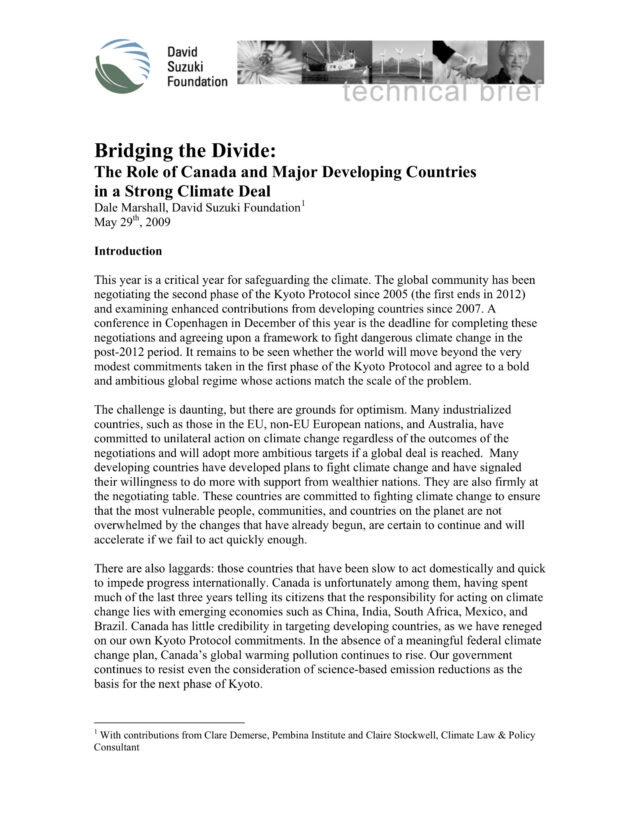Bridging the Divide: The Role of Canada and Major Developing Countries in a Strong Climate Deal
Published by:
David Suzuki Foundation
Authored by:
Dale Marshall
Climate solutions decarbonization, climate change, Kyoto Protocol
The year 2009 was critical for safeguarding the climate. The global community had been negotiating the second phase of the Kyoto Protocol since 2005 (the first ended in 2012) and examining enhanced contributions from developing countries since 2007. A conference in Copenhagen in December 2009 marked the deadline for completing these negotiations and agreeing on a framework to fight dangerous climate change in the post-2012 period. It remains to be seen whether the world will move beyond the very modest commitments taken in the first phase of the Kyoto Protocol and agree to a bold and ambitious global regime whose actions match the scale of the problem.
Unfortunately, Canada has been slow to act domestically and quick to impede progress internationally, having spent much of the past three years telling its citizens that the responsibility for acting on climate change lies with emerging economies such as China, India, South Africa, Mexico and Brazil. Canada has little credibility in targeting developing countries, as we have reneged on our own Kyoto Protocol commitments.
This technical briefing note lays out the reasons why Canada is a barrier to a strong Copenhagen agreement — much more so than China or other developing countries — and what our government can do to change that.
